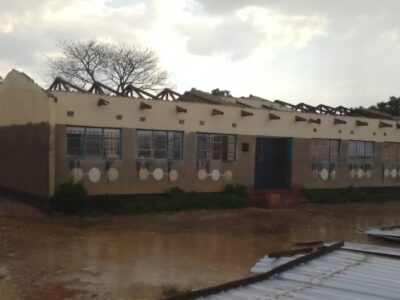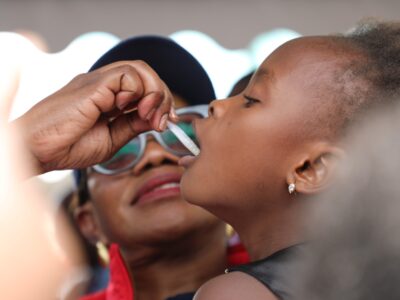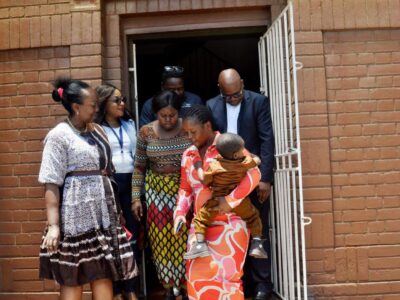In the vibrant and apparently happy streets of Dar es Salaam, Tanzania, a grieving uncle shares the tragic tale of his nephew, Nemes Tarimo, a young life cut short by the promise of freedom and the deceit of the mercenary group Wagner.
It’s been over two years since Russia’s full-scale invasion of Ukraine, and the ripple effects of the ongoing conflict are still being felt across the globe. For Tanzania and Zambia, the pain is personal.
Two young men, sent to study in Russia, lost their lives on the battlefront, drafted into a war they didn’t choose.
Their story is one of shattered dreams and broken promises. For Nemes Tarimo, a university student for three years, he fell in love with a Russian woman, but their relationship ended in conflict.
She allegedly planted drugs in his bag, leading to his arrest, prosecution, and sentencing to 10 years in prison.
It was there, behind bars, that Wagner, now known as the Africa Corps, found him. They promised freedom in exchange for fighting on behalf of Russia. Nemes took the offer, hoping to regain his liberty. But it was a fatal choice.
His uncle, Andrew Mwandenuka, speaking from a busy market in Dar es Salaam, recalls the pain of losing a loved one.
“We lost him just like that. No compensation was given by Wagner after his death. No one has heard from them since they communicated his passing. A young life was lost, just like that,”he tells this reporter with visible grief.
Nemes’ story is a grim reminder of the human cost of war and the predatory tactics of mercenary groups like Wagner. His family, still grieving, vows never to send another child to study in Russia.
“We were all shocked,” his uncle says. “Nemes was buried in Mbeya, where his mother hailed from. His parents are deceased, and now he’s gone too.”
As the world grapples with the consequences of Russia’s aggression, the story of Nemes Tarimo serves as a sad reminder of the devastating impact of war on innocent lives.
His memory must not be forgotten.
Nemes was not the only African student to lose his life at the warfront fighting for Russia with the promise of freedom.
‘Freedom’ costs Zambian student’s life
Zambia was in late 2022 treated to shocking news of a Zambian student dying at the battlefront in Ukraine.
Lemekani Nathan Nyirenda, a 23-year-old was sponsored by the Zambian government to study nuclear engineering in Russia but was convicted of unspecified crimes in 2020 and imprisoned.
He was later recruited from prison by Wagner to fight in Ukraine, where he died in September of 2022. But the Zambian government only learnt about his death in November, 2022.
Studying at the Moscow Engineering Physics Institute, it is not clear how Nyirenda came into conflict with the law, ending up serving part of a lengthy jail term before his demise.
The statement announcing his death by the Ministry of Foreign Affairs provided very few details about his case save to specify that he was convicted in 2020 of unspecified crimes in Russia and imprisoned for nine years and six months.
In a follow-up statement in December, the ministry explained Nyirenda was pardoned by the Russian government in August “to join a military operation in exchange for amnesty” and “was killed in September 2022 while participating in military activities.”
Fighting to repay Africa’s debts to Russia
Late Yevgeny Prigozhin, then head of the Wagner mercenary group, admitted to recruiting Nyirenda from a Russian jail, saying he chose to fight to “repay (Africa’s) debts” to Russia and “died a hero.”
The stories of Nemes and Nathan are just two of the many tales of the fallout of Russia ‘s war on Ukraine.
As Russia’s aggression against Ukraine continues, the conflict’s far-reaching consequences are being felt across the globe, threatening democracy’s very existence and the impact isn’t limited to Eastern Europe; Africa is increasingly entangled in this conflict.
The Wagner Group, a Russian mercenary organization, is at the forefront of this expansion, leaving a trail of concern and controversy in its wake.
The Wagner Group, now called Africa Corps, is a Russian private military company (PMC) with ties to the Kremlin.
Read More: Zambian man shot dead in Johannesburg, South Africa
Founded by Dmitry Utkin, a former Russian Special Forces operative, Wagner has become a key player in Russia’s military ambitions.
With a reputation for ruthlessness and efficiency, Wagner has been involved in various conflicts, from Ukraine to Syria and Africa.
In recent years, Wagner has significantly expanded its presence on the African continent. With operations in countries like Libya, Mali, and the Central African Republic, Wagner is using its military prowess to further Russian interests. But at what cost?
Wagner and its expansion in Africa
As Wagner’s influence grows, African countries are being drawn into this conflict. With Russia’s backing, Wagner is offering military assistance, training, and equipment to governments in exchange for loyalty and strategic access. But this comes with a price: loss of sovereignty, human rights violations, and increased instability.
Wagner’s expansion in Africa has far-reaching implications for democracy. By supporting authoritarian regimes and fueling conflict, Wagner is clearly undermining democratic institutions and values. While the world watches, it’s clear that the ramifications of Russia’s aggression extend far beyond Eastern Europe.
As Wagner’s shadow looms large over Africa, it is essential to recognize the threat posed by this Russian mercenary group. With its disregard for human life, disregard for international law, and push for military dominance, Wagner embodies the dangers of unchecked ambition. While Africa navigates this complex geopolitical landscape, it’s crucial to prioritize democracy, sovereignty, and human rights. The world must watch closely, lest Wagner’s influence spreads unchecked on the African continent.
WARNING! All rights reserved. This material, and other digital content on this website, may not be reproduced, published, broadcast, rewritten or redistributed in whole or in part without prior express permission from ZAMBIA MONITOR.














Comments